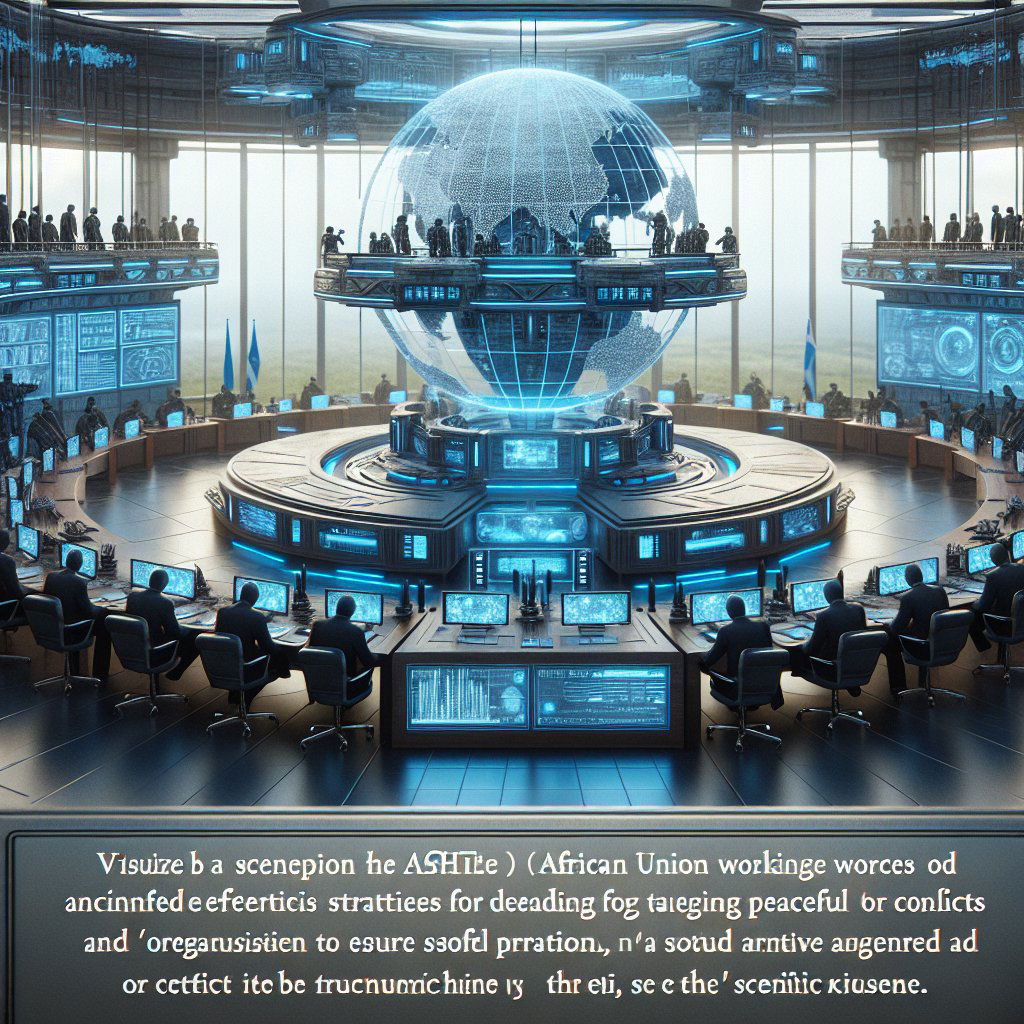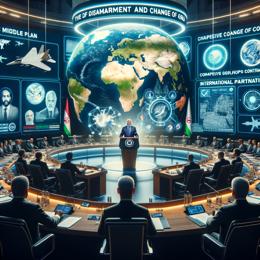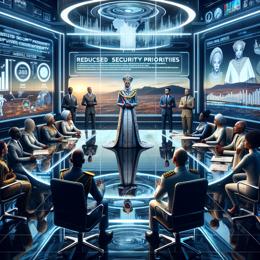Image created by AI
Enhancing Policing for Peacebuilding: A Crucial Strategy for the African Union
In its pursuit of development and trade through Agenda 2063, the African Union (AU) faces significant hurdles. Mounting security threats and pervasive instability across the continent put these ambitious goals at risk. Addressing the surge in violent conflict and organised crime, which has skyrocketed by 306% since 1989, necessitates an innovative stratagem as resilience on the ground remains precarious.
Traditional military-centric methods have proven insufficient to establish peace and stability, as peacebuilding – the crux of peace support operations (PSOs) – calls for a multifaceted approach inclusive of enhancing governance, upholding justice, and fostering reconciliation. Encouragingly, the AU is pivoting towards community-oriented policing, aligning itself with practices acclaimed by the United Nations (UN) and its leaders, including UN Secretary-General António Guterres, as vital in peacebuilding efforts.
However, the AU's utilization of policing within peace operations lags behind its stated intentions. Since 2000, out of 27 AU, PSOs, police forces have been substantially involved in only two missions, trailing significantly behind robust military deployments.
Troops alone cannot fulfill the objectives necessary for long-term stability; the collaboration among police, military, and civilian components is paramount. Police forces play a unique and critical role in preventing crime, administering justice, and restoring the rule of law, which complements the military's focus on ceasing immediate combat and securing the environment post-conflict.
Community policing, in particular, serves as a bridge for building trust and solidarity with local populations, laying the groundwork for societal resilience and durability of peace. This responsive, bottom-up approach inevitably brings civilians closer to the law enforcement process, promoting transparency and collective security.
Despite the recognized value of this model, the AU faces structural and strategic challenges in actualizing an effective policing component within its PSOs. As of now, the police lack representation in key AU decision-making bodies, and despite policy stipulations, critical roles such as the Chief Police Adviser remain unappointed. Moreover, the Police Strategic Support Group, established to provide guidance, is hindered by its advisory status and a lack of proactive leadership.
Communication between AU police and national police bodies also presents challenges, primarily due to the absence of direct linkages, causing information to funnel through slow, military channels. There is further difficulty in incorporating policing within broader PSO processes due to misconceptions of its scope as a solely local or domestic service.
To rectify these issues and maximize the impact of policing in peacebuilding, several steps are necessary. The AU must reinforce its continental police structure, and this can be achieved by rigorously implementing its policing policy, starting with the appointment of a Chief Police Adviser and the establishment of a dedicated police office within the AU Commission. This would ensure a centralized, coordinated effort across the continent to combat crime, manage conflicts, and build peace.
Additionally, involving police chiefs from member states, especially those within the Peace and Security Council, in decision-making processes will bridge the gap between strategic planning and practical implementation. Member states should also appoint police liaison officers to their permanent missions at the AU in Addis Ababa, thereby facilitating smoother communication and exchange of best practices.
For the AU to truly embrace and integrate comprehensive security strategies into its PSOs, and consequently, make tangible progress in achieving the objectives set out in Agenda 2063, a reinvigorated, police-inclusive approach is not only advisable but imperative.










